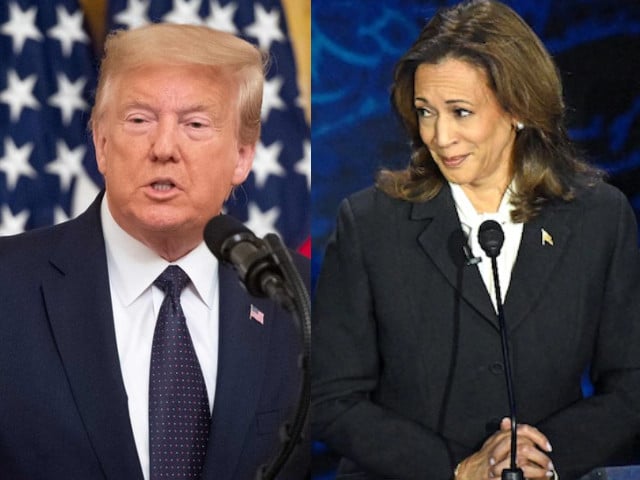Kamala Harris has confirmed her participation in a second presidential debate with Donald Trump, scheduled for October 23, as announced by her campaign on Saturday but Trump refuses to call for a second presidential debate citing that voting has already started.
“Donald Trump should have no problem agreeing to this debate,” said Jen O’Malley Dillon, Harris’s campaign chair, referencing Trump’s previous praise for a June debate format with CNN.
In a post on X, Harris stated, “I will gladly accept a second presidential debate on October 23. I hope Donald Trump will join me.”
The talk of the second debate follows their first encounter on September 10, where many pundits deemed Harris the winner.
Trump’s response, delivered at a rally in Wilmington, North Carolina, was dismissive. He argued that it’s “too late” for another debate since early voting has begun in several states.
“The voting is cast; the voters are out there,” Trump emphasized, urging supporters to vote immediately.
Harris’s campaign has been proactive in pushing for the debate, asserting that the American public deserves another opportunity to see the candidates engage.
Trump, however, expressed skepticism about CNN’s fairness in future debates, despite having found them “very fair” during his June debate with Joe Biden.
The context surrounding the election has changed significantly. After Biden’s poor performance in his initial debates, he exited the race in July, paving the way for Harris to lead the Democratic ticket.
With early voting already underway, the stakes are high in this competitive election, particularly in battleground states like North Carolina.
While Trump mentioned enjoying debates as “good entertainment value,” he reiterated his position that scheduling another debate at this stage is impractical.
His comments came shortly after the Harris campaign’s invitation, which they believe is a strategic move to highlight Trump’s reluctance.
In the lead-up to this election, debate scheduling has become a contentious topic, with both campaigns frequently clashing over formats, moderators, and other logistics.
Trump has previously criticized moderators for perceived bias, while a recent YouGov poll indicated that voters generally felt the ABC moderators in a prior debate were fair.
In a broader political context, Trump’s rhetoric has leaned heavily on anti-immigrant themes, framing migrants as threats to Midwestern communities, while promising ambitious goals such as reaching Mars by the end of his term.
The political landscape is further complicated by revelations surrounding Mark Robinson, the Republican gubernatorial candidate in North Carolina, who has come under fire for past incendiary comments.
This controversy could pose challenges for Trump as he seeks to consolidate support in a crucial state.
As the presidential race remains tightly contested, every vote will be crucial, and both candidates are gearing up for a pivotal stretch leading up to the November 5 election.



